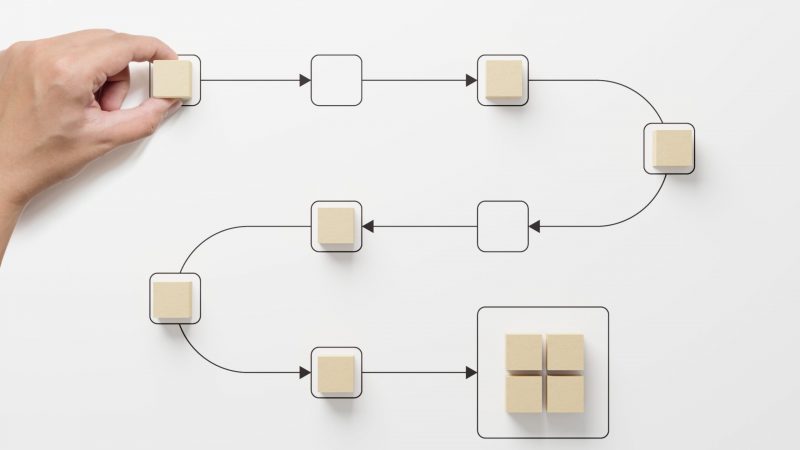How do ERP Systems Work?
An Enterprise Resource Planning (ERP) system is a software that collects, analyzes, and shares information from different parts of a company in one place. Basically, it’s a tool that organizes a company’s information, automates regular tasks, and makes business processes simpler. However, an ERP system also has its fair share of pros and cons.
The goal is to improve operations, save time for employees, and enhance communication within the company. ERP software is special because it helps various departments and can improve revenue and efficiency in certain fields:
- Accounting
- Customer Relationship Management (CRM)
- Manufacturing
- Inventory Management
- Human Resources
- Analytics / Reporting
But what about companies with highly distributed teams whose controller is in a faraway area? How can they stay in sync?
The answer is, with cloud-based software.
Why Do I Need an ERP System?
The reason to use an ERP is strong. It helps businesses use data effectively, allowing leaders to manage resources well and improve customer service. This gives the business an edge and helps it compete better. Consider these advantages for businesses:
Paperless Transactions
Important documents like procurement orders, timesheets, and invoices are stored securely online, making them accessible from any location.
Real-time Reports
Finance and business users gather data from various sources to understand the overall performance and well-being of the organization. This helps them find patterns, best methods, and areas that need enhancement.
Increase Earnings, Reduce Expenses
With better information access, sales teams can find potential customers, check current prices and product availability, and create contracts more efficiently and accurately. Cloud ERP helps companies by freeing up IT resources from server maintenance and software updates, allowing them to focus on assisting remote employees.
Pros and Cons of Implementing an ERP System
Pros
ERP systems are valuable tools for organizations. They help businesses by streamlining operations, safeguarding information, automating tasks, and generating clear reports. These systems make daily tasks and future planning more efficient for organizations.
Here are the top five pros of using ERP systems:
- Improves Visibility, Reporting, and Scalability: ERP allows access to real-time data from every department, enhancing collaboration and enabling informed decision-making. It helps in managing inventory levels and controlling working capital effectively. It also aids in financial reporting and offers business intelligence services, supporting better-informed decision-making. ERP systems are also modular, allowing businesses to choose components that suit their needs. They can be deployed on-premise or through the cloud, offering scalability and adaptability for future growth.
- Boosts Efficiency: ERP automates repetitive tasks, freeing up employees to focus on revenue-generating activities. It incorporates technologies like AI and machine learning, enabling intelligent suggestions and automation of various business activities.
- Strengthens Customer Service: Centralized customer information enhances customer interactions. ERP supports e-commerce integration, improving web-based order processing and client interactions.
- Utilizes Data Security and Quality: ERP ensures data security by controlling access to information. Both on-premise and cloud-based ERP systems offer secure data management, protecting critical and sensitive data.
- Standardizes Business Processes: ERP systems follow industry best practices, standardizing processes and systems. Automation reduces errors and costs, improving synergy between departments.
Cons
ERP systems offer many advantages, but it’s also important to be aware of the possible curveballs of using this system. Let’s explore some of the main disadvantages:
- High Costs: Traditional ERP systems, like SAP Business One, can be expensive, often costing five figures for a single license. This upfront cost can be a significant barrier, especially for small to medium-sized businesses. Cloud-based solutions with monthly subscriptions or open-source ERP software can be more budget-friendly options.
- Customization Challenges: While customization is a strength of ERP software, it can become costly and complex. Customizing the software requires time, expertise, and resources. Many businesses underestimate these requirements, leading to incomplete customization or exceeding the budget. Excessive customization can also make future upgrades difficult.
- Complexity and Training Needs: ERP systems offer a wide range of features, making them complex and challenging to use. Inadequate planning for implementation and training can lead to poor ROI. Some businesses may find ERP systems too complex for their needs, and convincing their team to adopt the software can be a struggle. Role-based user training and selecting systems with only the necessary functionality can mitigate these issues.
- Slow Implementation: Implementing a new ERP system is a time-consuming process, which can take up to two years, especially with outdated hardware. Planning is crucial to minimize disruptions in business processes. Even after implementation, it takes time for users to learn the system. A steep learning curve can hinder the transition process.
- Delayed Results: ERP implementation, training, and adaptation take time and patience. Results won’t be immediate, and you may need several months to see a return on investment. Like building a city, success with ERP requires time and dedication.
Conclusion
While ERP systems offer numerous benefits, it’s essential to consider their disadvantages and plan accordingly for a successful implementation. When choosing the right platform for your business, it’s important to think about the good and bad sides of ERP software. Don’t be discouraged by the possible drawbacks; these tools can greatly improve your business.
For most companies, the benefits of ERP systems are often more significant than the disadvantages. The potential for more efficient business operations and increased productivity, in the long run, makes investing time and resources in ERP systems worthwhile.



